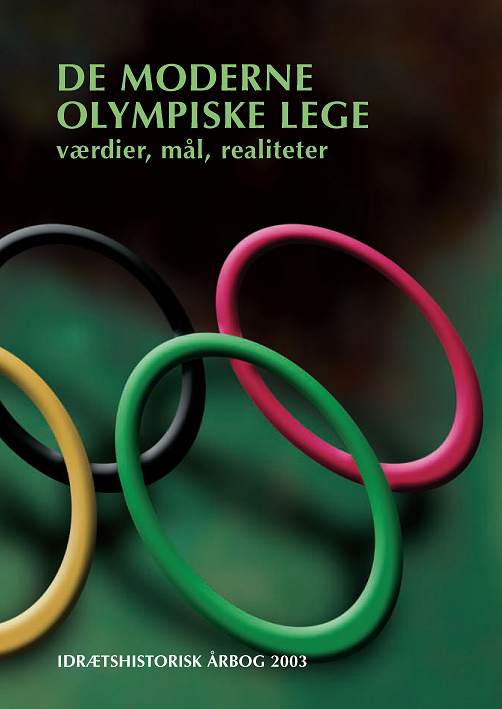Dansk idræt og den olympiske bevægelse 1894-1932
DOI:
https://doi.org/10.7146/ffi.v19i1.31717Resumé
Dansk idræts forhold til den internationale olympiske bevægelse i omtalte periode.
Danish sport and the Olympic movement 1894-1932
The International Olympic Committee (IOC) was formed in June 1894 by Pierre de Coubertin, partly inspired by the international movement for peace. Members were men particularly of the upper classes hand-picked by Coubertin. The Danish Sport Association (DIF) was created by men in 1896 from the Copenhagen bourgeoisie, many of them inspired by England. After about 1900 the working class became a majority in DIF, but the bourgeoisie continued to retain power for many years. Scandinavian sporting collaboration at the organizational level took shape after a couple of failed attempts and became in 1919 “De nordiske Rigs-Idrætsforbunds Fælleskomité” (The Joint Committee of Scandinavian National Sports Federations). The work of the “joint committee” is an example of the way in which a group of minor states, by dint of formalized, organized work, attempted to acquire influence on the IOC during this period. Around the period of the 1st World War, rules for sports training had been left by the IOC to the international special federations, which had now been established. These special federations had also made their own rules for amateurs, the contents of which could, therefore, vary somewhat between one sporting branch and another. However, while the IOC had ceased getting involved in professional sports rules, this was not the case as concerned amateur rules. Here the IOC attempted right up until 1952 to retain its role as watchdog. This has to be seen in the context of the IOC’s view that sport is a educational means to create a better world in which peace and international understanding prevail. This had not originally been Coubertin’s intention with his educational programme, but here the Zeitgeist was against him and he had to give way to ideals of the English gentleman and American middle class attitudes. In Denmark the ideas of Olympism did not catch on. In the period 1897-1918 DIF introduced completely unique amateur rules, which used the term “non-amateur” instead of “professional”. This made it possible to hand out punishments for infringements of “ethical rules” instead of only being able to punish for “economic” infringements as was the custom.
Downloads
Publiceret
Citation/Eksport
Nummer
Sektion
Licens
Forfattere, der publicerer deres værker via dette tidsskrift, accepterer følgende vilkår:
- Forfattere bevarer deres ophavsret og giver tidsskriftet ret til første publicering, samtidigt med at værket er omfattet af en Creative Commons Attribution-licens, der giver andre ret til at dele værket med en anerkendelse af værkets forfatter og første publicering i nærværende tidsskrift.
- Forfattere kan indgå flere separate kontraktlige aftaler om ikke-eksklusiv distribution af tidsskriftets publicerede version af værket (f.eks. sende det til et institutionslager eller udgive det i en bog), med en anerkendelse af værkets første publicering i nærværende tidsskrift.
- Forfattere har ret til og opfordres til at publicere deres værker online (f.eks. i institutionslagre eller på deres websted) forud for og under manuskriptprocessen, da dette kan føre til produktive udvekslinger, samt tidligere og større citater fra publicerede værker (se The Effect of Open Access).





